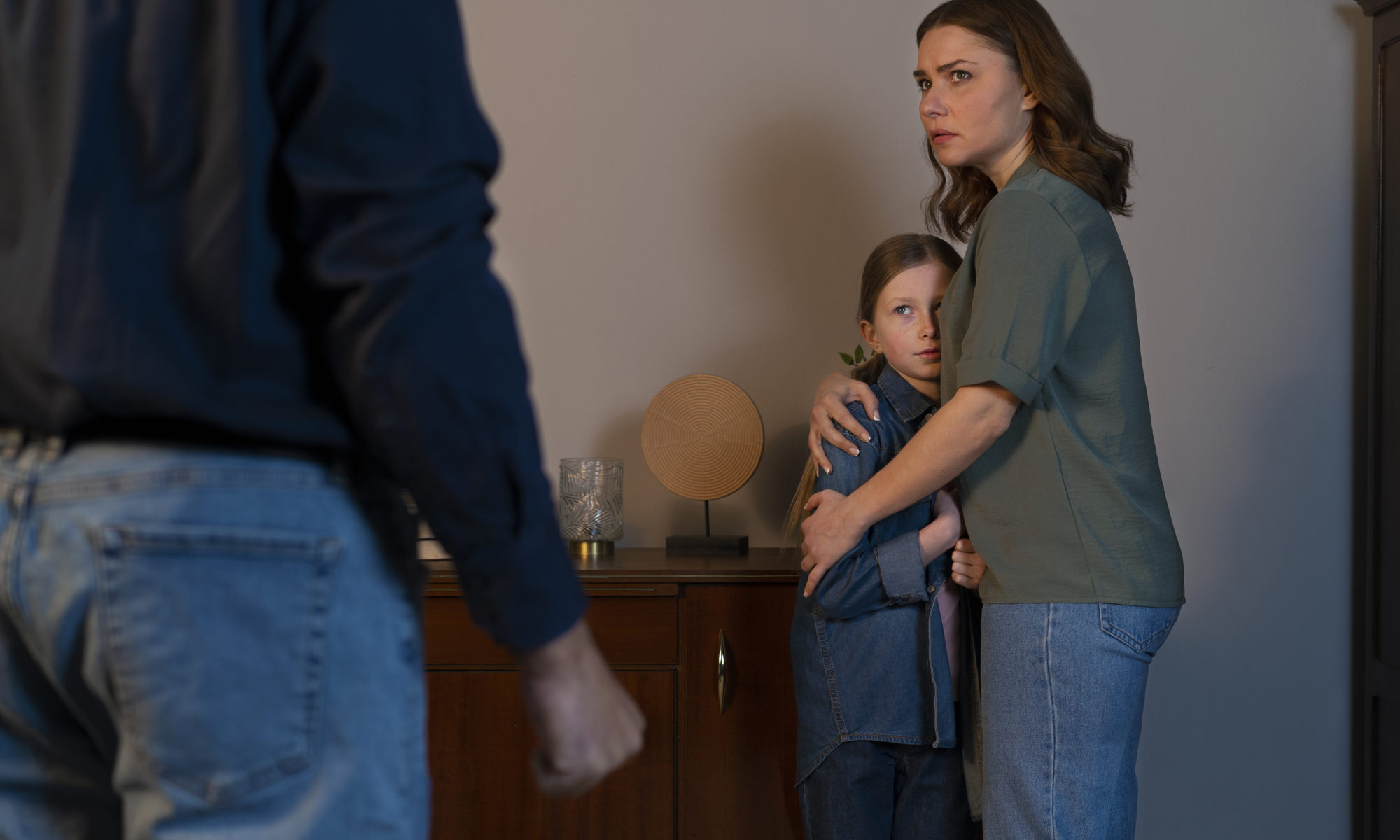Co-parenting is a bit like walking a tightrope—carefully balancing routines, emotions, and expectations. Now imagine doing it during a storm. That’s what it can feel like when your ex is in recovery from addiction. The wind shifts constantly. Some days bring progress and hope. Others feel uncertain, even frightening. And in the middle of it all stands your child, needing stability, love, and a sense of safety.
What Does “In Recovery” Really Mean?
When your ex says they’re “in recovery,” it’s not a quick fix; it’s a long, personal journey. If you understand this recovery process, it can help you protect your child and yourself.
Recovery often follows a pattern, which can be broken down into five stages:
Recovery often follows five key stages:
- Pre-Contemplation:
They don’t see a problem yet. Denial runs the show, and trying to talk about change feels like hitting a brick wall. - Contemplation:
They’re starting to think, “Maybe I need to change,” but they’re still unsure. You might hear, “I’ll quit someday… just not now.” - Preparation:
They begin taking small steps—avoiding triggers, reaching out for support. This is when boundaries and encouragement both matter. - Action:
They’re actively working to stay clean—maybe through rehab, therapy, or support groups. It’s the toughest phase, and emotions often run high. - Maintenance:
After six months or more of sobriety, they’re maintaining progress—but the work never really ends. Relapse is still a risk.
Recovery isn’t a straight line. One week, they might be the parent you always hoped they’d be. The next, they might miss a pickup or seem off. That unpredictability is why your co-parenting plan needs to prioritize your kids’ safety and emotional well-being, no matter where your ex is on their journey.
Challenges of Co-Parenting During Recovery
If you’re co-parenting with someone in recovery, you already know how messy and exhausting it can feel. There are several challenges most of the people face (and maybe you’ve lived, too):
1. Emotional whiplash. You’re angry, hurt, and maybe even grieving the relationship—all while trying to keep it together for your kids. It’s like your heart’s stuck in a tug-of-war between resentment and hoping your ex stays sober.
2. Flaky routines. Missed pickups, forgotten birthdays, last-minute cancellations. Inconsistency from the recovering parent leaves your kids confused and you scrambling to fill the gaps. If a relapse happens, it’s like hitting reset on any trust you’ve built.
3. Safety paranoia. You’re hyper-aware of risks: Are the kids safe with them? What if they relapse? Addiction’s shadow—like reckless behavior or unstable environments—haunts every decision.
4. Trust Issues. Addiction shatters trust, and rebuilding it feels like gluing a shattered vase. You want to believe their promises, but past lies or broken commitments leave you guarded.
5. Emotional chaos. The recovering parent might swing between anger, withdrawal, or irrational outbursts. Kids pick up on this volatility, and it scares them—which then fuels your own helplessness or rage.
6. The empathy trap. You want to support their recovery, but you can’t let your guard down. Setting boundaries feels harsh, but being too lenient might enable old patterns.
7. Walking the accountability tightrope. Every slip-up forces you to ask: Do I hold them accountable, or give grace? Consequences feel necessary, but you worry they’ll spiral. It’s exhausting to be both a support and a referee.
8. The kids’ silent struggles. They’re confused, scared, or acting out—but you’re juggling their needs while managing the recovering parent’s instability. It’s guilt layered on guilt.
There’s also something called “dry drunk” syndrome—when your ex stops using but hasn’t worked on the emotional baggage driving their addiction. They might still be moody, blame others, or act like they’re owed something. It’s tough because it feels like they’re sober but not really “better.” Spotting this can help you reinforce boundaries or push for more professional help to keep your kids safe
Tips For Building a Stable Co-Parenting Plan When Your Ex is in Recovery
You’re doing everything you can to give your kids stability, and that’s incredible. Here’s how to create a co-parenting plan that works, even with recovery in the mix.
Keep Communication Clear & Kind with your Ex
If you’re co-parenting with someone who’s in recovery, clear and respectful communication is a must. Especially if things have been tense in the past, the way you communicate can either help or hurt the situation.
One of the best things We’ve found that works is using 2houses co-parenting app. This app lets you keep everything in writing—schedules, expenses, school info—all in one place. It helps prevent arguments, and if things ever go to court, you’ve got everything documented. That peace of mind? It’s worth it.
When you talk with your ex, try to keep things “business-like.” I know that’s easier said than done, but focusing just on the kids and leaving emotions out of it really helps. Speak calmly, be respectful, and stick to the facts. A good tip: use “I” statements like “I feel concerned when…” instead of “You never…”. It helps avoid fights.
Also, having regular check-ins—maybe weekly or biweekly—can keep both of you in the loop about school stuff, health updates, and anything else your child needs. If your ex lives far away, scheduled calls or video chats help your child feel more secure and connected.
At the end of the day, it’s not just about making life easier for you—it’s about protecting your child from drama and giving them a safe, stable space to grow up. And that’s what really matters.
Set Strong, Loving Boundaries
Boundaries are a big deal, especially when your ex is in recovery. You need to clearly define what’s okay and what’s not—especially when it comes to your child’s safety.
If your ex wants unsupervised time with the kids, they need to earn your trust. That might mean sharing proof of their recovery, like AA/NA meeting logs or letters from their therapist. Tools like Soberlink can help confirm sobriety too. Courts often want months of solid sobriety before granting more parenting time, so don’t feel pressured to rush this.
If agreements get broken—like if your ex relapses or skips therapy—there need to be clear consequences. This could mean supervised visits, more drug tests, or even adjusting custody through the court. Keep a record of everything; it’s super important for legal stuff. These boundaries aren’t about being harsh—they’re about keeping your kids safe and giving them the stability they need, no matter what’s going on with your ex.
Be Flexible But Ready for Anything
Life throws curveballs, especially with recovery in the mix. Have a backup plan for childcare in case of a relapse or emergency. Your parenting plan should spell out what happens if things go off track, like who steps in to keep your kids’ routine steady.
Holidays and special events can be especially tough. Emotions run high, and sometimes the past comes creeping in. Try to plan ahead and be flexible. If swapping Christmas Day for the weekend after keeps things calm and happy for your child, go for it. The goal is always your child’s well-being—not sticking to old routines or proving a point.
By planning for the unpredictable, you’re creating a calm, steady world for your child—even if everything else feels chaotic.
Talking to Your Kids About What’s Going On
Kids are smarter than we give them credit for. They feel when something’s off, and if we don’t talk to them, they’ll fill in the blanks with their own fears and guilt.
It’s okay to explain that their other parent has an illness called addiction. You don’t have to get into all the details—just be honest in a way they can understand. For little kids, you might say it’s like when someone eats too much candy and gets sick. For older kids, you can explain more about the effects of addiction.
Make sure they hear these messages loud and clear:
- It’s not your fault.
- You’re not alone.
- Your parent isn’t bad—they’re struggling.
Let them talk. Ask open-ended questions like “How do you feel about all this?” or “Is there anything you want to ask me?” If they don’t want to talk right away, that’s okay. Just let them know the door is always open.
Taking Care of You, Too
Here’s something I really want you to hear: you can’t control your ex’s recovery. You can support them, you can cheer them on, but you can’t do the work for them.
What you can control is how you respond, how you set boundaries, and how you take care of yourself. Focus your energy there.
Recovery is a long road. Some days will feel hopeful, and others might feel like you’re back at square one. Celebrate the small wins—but never at the cost of your own peace or safety. You can be kind and encouraging without dropping your guard or sacrificing your well-being.
And please—don’t try to do this alone. Build a support system. Lean on friends, family, therapists, or support groups. You deserve care and compassion just as much as your child and your ex do.
At the end of the day, this journey is tough. But your efforts—every hard conversation, every boundary set, every late-night worry—they matter. You’re building a more stable, loving world for your child. That’s something to be proud of.
You’re not alone. And you’re doing better than you think.







